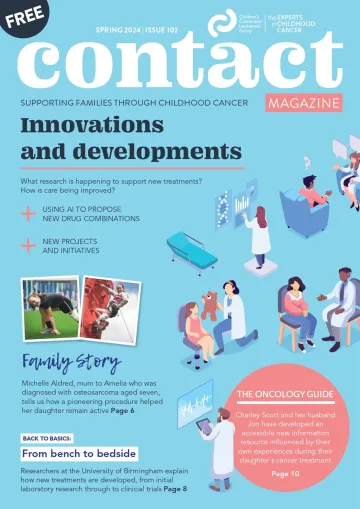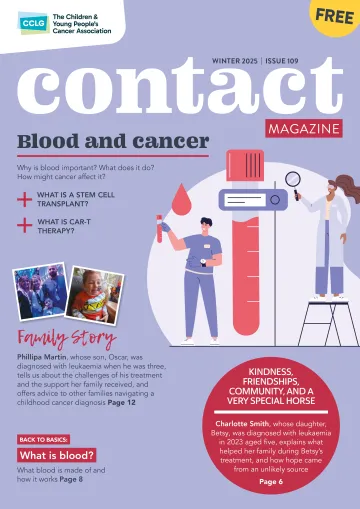Children with cancer who also have learning difficulties and autism often have additional needs when it comes to their care. Jeanette Hawkins, CCLG’s Chief Nurse, tells us more about a project aiming to improve support for this group of patients.
In early 2023, I joined the NHS England Cancer Experience of Care Improvement Collaborative (CIC) expert advisory group. The CIC brings together cancer healthcare professionals and people with lived experience from different organisations to work in a structured way to improve services.
The group translates findings from the annual National Cancer Patient Experience Survey (CPES) for adults, and the Under 16 years CPES into themes where improvement is needed. They offer hospitals the chance to apply to be part of a quality improvement programme, giving teams the opportunity for training and support in quality improvement (QI) methods.
Last year’s improvement theme was ‘people diagnosed with cancer who had a pre-existing condition of learning disability, autism, mental health condition or dementia’, because data showed their experience of care scored lower than for other groups across a range of areas. We know that children with Down syndrome are predisposed to cancer, particularly leukaemia, and all have a degree of learning disability (LD), so they’re represented in children and young people’s cancer services. We also see children with autism on a regular basis. It made sense that this group of children and young people should be a focus for us.
The project
We knew from the outset that you can’t fix everything about the cancer experience for these patient groups and their families through just one project. So, our next step was to identify where there were struggle points for them, as well as areas that professionals felt could be improved. It quickly became apparent that scans, tests and investigations were a particularly challenging part of care.
Guided by the CIC, we established a project team of multiprofessionals with an interest in QI or in LD and autism from the UK’s children and young people cancer centres. We were privileged to get Sue North (MBE), the lead for children and young people in the Learning Disability and Autism Programme of Care at NHSE, as our project sponsor.
Importantly, we appointed parents with lived experience to the project team. The CIC provide workshops and one-on-one support sessions which helped the team learn about QI approaches and helped us further refine the project to ensure it would be achievable and make sustainable change. As a result, we’re now focusing on the experience of having an off-the-ward X-ray, and is likely to illuminate areas for improvement that will be transferable to other tests, scans and investigations. We’re also working with representatives from the Society of Radiographers.
Vital baseline data is collected before making any assumptions about where improvements might be made. Our lived experience partners have been amazing at informing the data collection tool and testing it with other families to ensure it’s suitable. The tool collects data which helps us understand patients’ and families’ experiences of having an X-ray.
Next steps
We’re gathering real-time data from families presently going through services whose child has had an X-ray in the last six months. This will be used to identify areas for improvement. We already have indications of what these might be and have an ‘ideas car park’ for possible interventions to test.
We’re looking at small practical changes, that can have a big impact. Like improving how an X-ray department is notified that the patient has additional needs so that they can plan non-urgent X-rays for in-patients at a quieter time of day. Or implementing checklists to ensure a child and family’s needs have been adequately assessed for the procedure. Perhaps simple guides or training tools for radiology staff on supporting those with additional needs.
We estimate the project will take another 18 months to have tried out some changes and completed robust testing to make sure changes are positive and sustainable.
From Contact magazine issue 102 - Spring 2024


